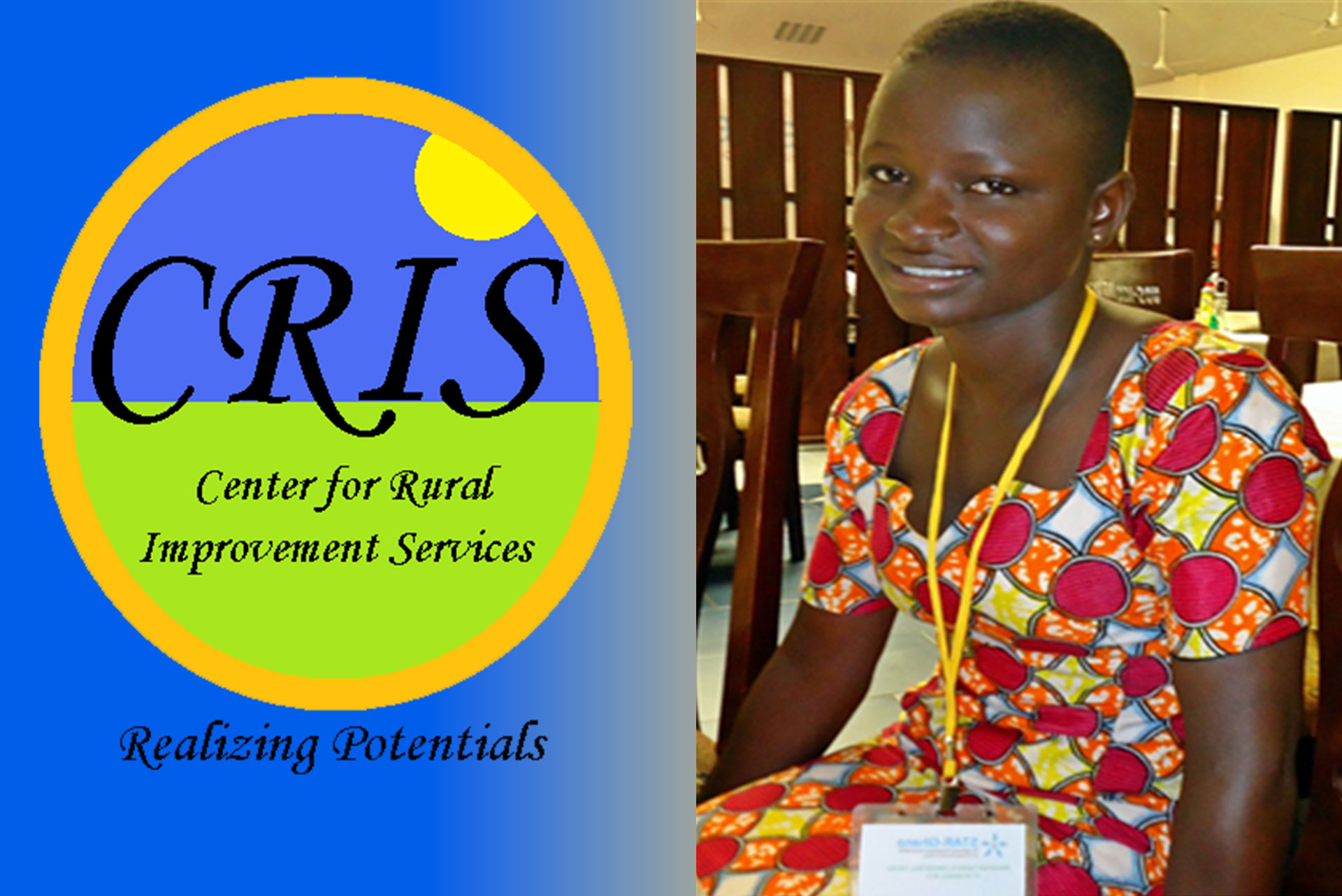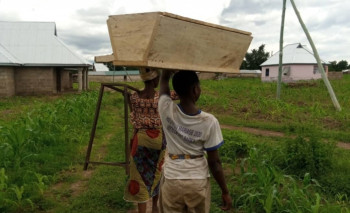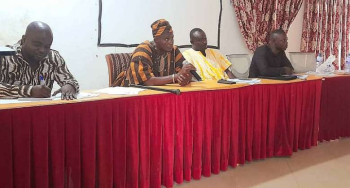Ubeda Tamimu, is a teenage mother from Langbonto in the West Gonja District of the Northern Region. At age 17, she is back in school after delivering a baby boy three years ago. According to Ubeda, she is happy her dream of becoming a teacher in future is back on track.
She says, “when you go to school, you can become somebody in the future. I like teachers, they help shape the lives of their pupils, so I want to become one”.
Following the separation of her parents in Ghana’s capital, Accra, she was sent to live with her grand mother in Langbonto in Damongo. She became pregnant at age 13, whiles in class six at St Annes Primary School, Damongo. Teachers who noticed the pregnancy in her school, adviced her against aborting the baby. She kept the pregnancy and delivered a baby boy. 3 years after she delivered, Ubeda was enrolled in the Jakpa Junior High School; to continue with her basic education in the 2012/2013 academic year. She is presently in Form One.
Ubeda is beneficiary of an education project being undertaken by the Centre for Rural Improvement Services (CRIS). Ubeda is one of 57 teenage mothers and dropped out girls who are back to school, thanks to an intervention of the Centre for Rural Improvement Services (CRIS).
The Intervention
CRIS with funding from STAR-GHANA is focusing on improving effectiveness of the Free Compulsory Universal Basic Education(FCUBE) and the Re-entry policy for increased impact of girl child education in two districts; the West Gonja and Sawla – Tuna- Kalba districts of Northern Region
Though the policy makes provision for school dropouts and pupils who become pregnant to return to school to complete their education after delivery, it is rarely adhered to.
The Centre for Rural Improvement Services is therefore advocating for the effective implementation of this provision among others. Through community dialogue sessions and working with women leaders in its project catchment areas, CRIS identifies potential beneficiaries of their intervention and reaches out to their families.
According to Mr Amos Seidu, the Executive Director of CRIS, they have worked in communities in all beneficiary districts in the past undertaking similar interventions. As a result, there exist cordial working relations with a number of women leaders who act as volunteers in the communities. He said these women have been assigned the responsibility of helping to identify the school drop outs and teenage mothers, after which CRIS moves in to engage with the parents directly.
According to Mr Amos Seidu ,the parents are usually relunctant to send these girls back to school.
He said, “usually when we follow up to the families of the teenage mothers ,they are initially apprehensive about allowing the girls to go back to school.They worry about the girls getting pregnant again and also about who will take care of the children, when their mothers return to school”.
In the case of Ubeda, her grandmother after some sensitization and persuasion, agreed to wean off the baby whiles she returns to the class room to study.
CRIS’ intervention doesn’t just end here. The project continues to monitor the performance and progress of Ubeda and other girls who have returned to school. This is done with the active participation of community members, Parent Teacher Associations and School Management Committees.
The teengage mothers have also formed “controlled groups” who act as peer educators to mentor each other and support other teenaage mothers to return to school. .
The teenage mothers are faced with a different kind of challenege now. Like Ubeda, most of the 57 teenage mothers and girl drop-outs are struggling to fends for themselves, their babies and and to provide basic needs including school uniform, exercise books, pens, etc.
Conclusion
Ubeda is an example of how implementing policies targeting specific groups of people can bring about change in their lives. CRIS by advocating for the effective implementation of the provisions of FCUBE,is ensuring that the Ghana Education Service is being accountable and responsive.
Notes:
About CRIS: The Centre for Rural Improvement Services with funding from STAR-Ghana is implementing a project under STAR- Ghana Education grant call titled the Improving the Effectiveness of Free Compulsory Universal Basic Education (FCUBE) and School Re-entry Policies for Increased Impact of Girl-Child Education in Northern Region. The project started in 2011 December and ended on November,2014 CRIS will like to replicate and scale up its gains to other communities. Therefore CRIS will like to partner like minded organisations Embassies, local and international for increased impact.







